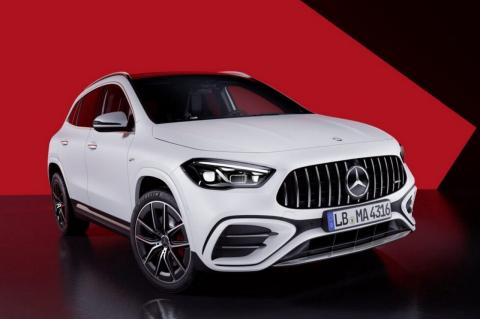The transition to the electric car is underway and with the machinery running at full capacity. Most carmakers are investing huge amounts of money to electrify their model range in the coming years and the trend is for more. In this sense, Germany is being, once again, the locomotive, but with a great paradox.
The increased interest in developing the electric vehicle is largely due to the policies of the European authorities. Without going any further, the European Parliament recently approved a ban on the manufacture of internal combustion engines from 2035.
Although, thanks to an amendment presented by a group of Italian deputies, there will be some exceptions for the most exclusive manufacturers, whose production does not exceed 10,000 units per year, in the case of brands such as Ferrari, Lamborghini or Bugatti. An exception that has been achieved thanks to the so-called ‘Ferrari amendment’.
The community decision to veto internal combustion engines from 2035, a proposal launched by the Environment Commission, is justified by the objective of reducing CO2 emissions in the coming years: 55% in 2030, compared to 1990 values, and achieve carbon neutrality by 2050.
But it often happens that, when very long-term decisions are made, external factors that can prevent the achievement of the set objectives cannot be taken into account. And that is what is happening with the war in Ukraine.
For months, practically a year, Europe has been disturbed by such acute inflation that it would be necessary to go back several decades in the calendar to remember a similar moment. An escalation in the cost of living motivated by the increase in the price of energy which, in turn, has been aggravated by the war.
And, although the objective of this article is not to analyze the causes that have led to the invasion of Ukraine by Russia and its geopolitical and economic consequences, it should be emphasized that a large part of Europe depends on Russian gas and oil, specifically, a country that, furthermore, is not just any country: Germany.
Through the Nord Stream 1 gas pipeline, the Russian company Gazprom supplies gas to Germany. But Gazprom announced on June 15 that it had begun to reduce that supply, as reported by the newspaper El País, alleging technical and logistical reasons.
But Germany is worried because it relies on that gas for heat. Not now, in summer, with gas reserves above 57%, but for winter, in an area of Europe where very low temperatures are recorded and heating is vital to survive.
So, to avoid problems related to the lack of gas, it has taken a solution completely removed from the ecological postulates that currently prevail, not only in the Teutonic country, but also in the entire European Union: go back to burning coal.
Indeed, what is usually known as realpolitik has led the German government, in whose coalition is the environmentalist party of Los Verdes, to reactivate its old coal plants due to the risk of a lack of energy supply from Russia. Germany had promised to go coal-free by 2030, yet now it is turning to it again.
“It is a bitter decision, but a necessary one.” This has been said by Robert Habeck, Minister of Economy and Climate of the German government, who also belongs to the environmentalist party. “To reduce gas consumption, less gas must be used to generate electricity. Instead, coal plants will have to be used more,” he adds.
This decision is also in tune with the sanctions that the EU is imposing on Russia, as punishment for the invasion of Ukraine. The central idea is not to depend so much on Russian energy so as not to finance “their” war. Although this implies polluting more… by burning coal.
A few months ago, when the ban on heat engines in 2035 was just a proposal, one of the countries that were not very in favor was Germany itself, along with France and Italy.
While France asked to delay the date to 2040, Germany asked that combustion engines coexist with electric ones. The significant weight of the automotive industry in the country must be taken into account, with many jobs at stake.
However, the war between Russia and Ukraine led to a change in mentality: promoting the electric car so as not to depend on Russian oil. Now, Germany is in favor of banning combustion engines in 2035 and accelerating the electrification of the fleet.
However, at the same time that it encourages the development and purchase of battery-powered vehicles, Germany makes the decision to go back to burning coal for energy.
In the total of the CO2 emissions that are expelled into the atmosphere, cars represent around 12%. However, the authorities focus on the electric car as a necessary measure to combat climate change, while burning coal and gas to obtain the electricity that will be necessary to move these cars.
And while huge amounts of coal are burned again to have energy and face winter when it comes. It is the great paradox of Germany and Europe.










